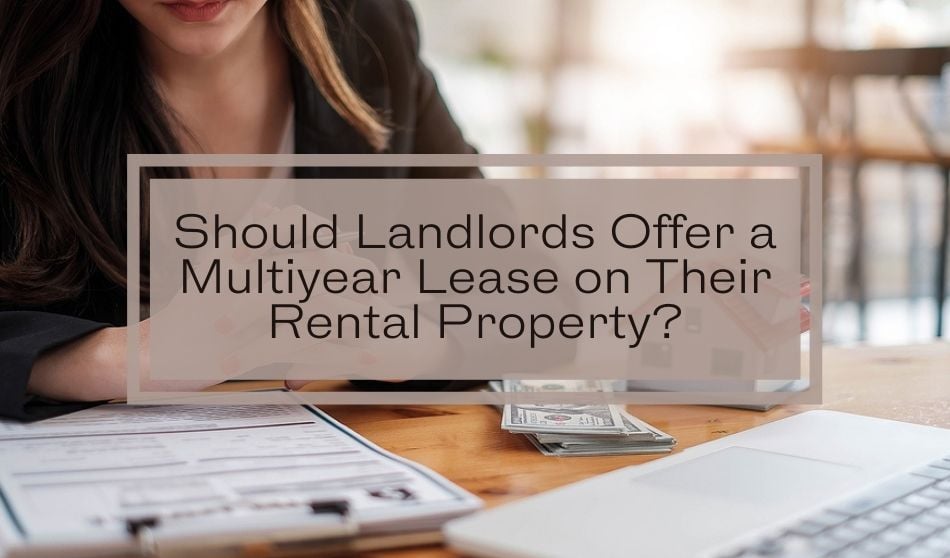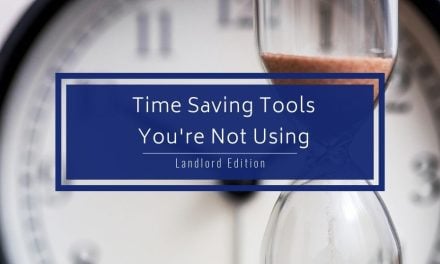Finding a responsible long-term tenant is the goal for any landlord or property manager, but does this mean that offering a multiyear lease is in your best interests?
Allowing potential tenants the opportunity to sign a multiyear lease may seem like an excellent tool to mitigate turnover costs, but there is a lot to consider before you put that offer on the table.
Why Landlords Should Offer Multiyear Leases to Tenants:
Multiyear leases can have their perks for landlords and tenants alike. Tenants can benefit from multiyear leases for a multitude of reasons; the advantage of easy financial forecasts and the assurance that they will have a great home long-term are, perhaps, the most notable. However, the perks are not exclusive to renters.
Experienced landlords and property managers know first-hand the headaches associated with tenant turnover. From cleaning fees, time spent scheduling maintenance and repairs, to all of the time and the costs associated with marketing and showing your property, interviewing and screening potential tenants, and finally signing with a responsible applicant, there is a lot to coordinate. That is, of course, assuming that your unit does not remain vacant for too long, which can severely harm your bottom line.
With the high monetary and time investment required of this process, there is a lot to be gained from mitigating turnover through high renewal rates or multiyear leases.
Learn more: The Real Cost of Tenant Turnover
When Landlords Should Avoid Offering a Multiyear Lease:
A long term lease agreement makes it very difficult to remove a bad or irresponsible tenant. If you do not have a full understanding of a tenant’s current situation or habits, it may be best to avoid offering a multiyear lease agreement. There are multiple situations where long lease agreements (especially those that are mutliyear) may not make sense.
In these situations, a standard term agreement is best:
- Your tenant has a history of late payments (with you or a previous landlord)
- Your tenant has a history of property damage
- Note: Keep in mind that all tenants should be subject to regular inspections; you do not want to come across property damage that was years in the making. These repairs can be extremely costly.
- Your potential tenant has no history of long-term commitments previously (check past rental and job history)
- You are screening a new applicant or renewing a current tenant who does not have a good rapport with you or your property management team
- You live in an area where your local laws make it more difficult for landlords to evict bad tenants
- Your property resides in a competitive rental market with low vacancy rates
When is the Best Time to Offer a Multiyear Lease to a Tenant?
Long-term tenants prevent vacant units and mitigate frequent turnover costs. A responsible tenant who regularly pays rent in a timely manner and who follows the lease agreement can be hard to come by–even with the best tenant screening practices. This is the dream renter every landlord wants living in their rental property.
There are some downsides associated with multiyear leases, but landlords can mitigate these cons by only offering a multiyear lease under specific circumstances.
If you have a current tenant who never causes damage, pays rent on time, and has a good reputation with you or your property management team, it can be worthwhile to offer a longer-term or multiyear lease. Under these circumstances, you may find it will save you money and headache to offer rent concessions or other renewal perks to keep your great tenants in your units. Remember that even in tight rental markets, competitors will often offer exciting lease signing perks or discounts to entice your current residents.
That said, remember that cost-of-living, taxes, and the market rate will be going up each year. Wise landlords and management teams will keep this in mind when creating a multiyear lease; you may even find that including an annual nominal rent increase within the lease agreement can offset the shock when your tenant finally does go to renew or move. (Naturally, review this with a lawyer familiar with rental real estate laws in your area.) Tenants still benefit from this arrangement since they are still able to get an accurate finical forecast long-term. This also allows you to offer any rent concessions or perks like free storage units or parking without losing too much income.
Final Thoughts
No matter how great of a landlord-tenant relationship you may have with your current renter, circumstances can still change unexpectedly.
If you plan to offer a multiyear lease to any tenants, you need to have contingency plans. Ensure that you understand the pros and cons of offering cash for keys to bad tenants and that you understand the nuances of allowing subleasing for responsible tenants who may need to move.
Multiyear rental agreements can be risky to landlords and renters alike, if they are not approached thoughtfully. However, keeping your current tenants happy while they rent with you and offering them rent concessions for renewing with a multiyear agreement can be a win-win for both parties.






